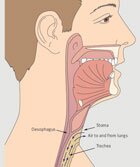Understanding Cannabis Addiction: Symptoms and Risks

Understanding cannabis addiction involves recognizing a range of symptoms and risks that can arise from chronic use. These include subtle changes in behavior such as increased tolerance, withdrawal symptoms like irritability and insomnia, and impaired cognitive function.
Additionally, long-term cannabis addiction can lead to adverse health effects like respiratory issues, cardiovascular complications, and mental health disorders.
By delving into the symptoms and risks associated with cannabis addiction, one can appreciate the complexity of this issue and its impact on individuals. It is essential to approach this topic with a balanced perspective to understand the challenges faced by those struggling with cannabis addiction.
Cannabis Addiction Symptoms
Signs such as increased tolerance, withdrawal from social interactions, neglect of obligations, and intense cravings may indicate the presence of an addiction.
Individuals struggling with cannabis addiction may notice a heightened focus on using the substance, along with challenges in reducing or stopping its consumption. Common experiences during attempts to quit cannabis include strong cravings, sleep disturbances, and difficulties with concentration.
Early recognition of these symptoms is important for seeking assistance and preventing further adverse outcomes. By acknowledging these warning signs, individuals can take proactive steps to address their addiction and safeguard their overall well-being.
Risks of Cannabis Abuse
Prolonged misuse of cannabis carries substantial risks to both physical and mental health. Individuals who abuse cannabis may experience respiratory issues, elevated heart rate, cognitive decline, and mental health disorders.
Those with cannabis use disorder may encounter withdrawal symptoms such as intense cravings and disruptions in sleep patterns. Studies indicate a connection between cannabis addiction and adverse effects on interpersonal relationships and legal entanglements.
Adolescents and young adults who use high THC cannabis are particularly vulnerable to developing mental health issues. It's important to acknowledge these risks linked to cannabis abuse to prevent further harm to one's well-being.
If you need help fighting cannabis addiction, make sure to reach out to an addiction rehab that specializes in marijuana addiction treatment, such as New Chapter Faith Recovery. Below, you can find their contact details:
Behavioral Indicators of Addiction
Behavioral signs of cannabis addiction may include neglecting responsibilities, unsuccessful attempts to reduce use, and engaging in risky behaviors such as driving under the influence. Withdrawal from social activities and excessive time spent using cannabis are common indicators of addiction.
Using cannabis in unsafe situations can also suggest a problematic relationship with the substance. Individuals with cannabis addiction may develop increased tolerance to its effects and experience persistent cravings. Recognizing these behavioral red flags is important in addressing the development of a cannabis use disorder.
Seeking intervention and treatment when these signs are present can help prevent further negative consequences associated with cannabis addiction.
Psychological Effects of Cannabis Use
Understanding the psychological impact of cannabis use is essential for recognizing potential risks and addressing addiction effectively. Cannabis consumption can lead to various psychological effects, such as altered perceptions, mood elevation, and relaxation. Users may experience immediate changes like euphoria, anxiety, and distorted time perception.
Chronic use can result in cognitive impairments, memory issues, and difficulties in decision-making. Prolonged misuse of cannabis may contribute to mental health disorders like anxiety, depression, and even psychosis. It's crucial to be aware of these psychological consequences to understand the risks associated with cannabis use and the importance of seeking appropriate interventions and treatment for addiction.
Seeking Intervention for Addiction
If you're struggling with cannabis addiction, seeking intervention could be beneficial in addressing your substance abuse issues. Professional help and support groups are available to assist you in overcoming your dependency on marijuana.
Treatment programs are designed to equip you with the necessary tools to combat the urge to use cannabis. Through intervention, you can acquire skills for leading a productive life and address any harm caused by addiction.
Latest Trends in Marijuana Addiction Treatment
Peer support groups and counseling programs are key components in providing guidance and emotional support throughout the recovery journey.
In some cases, medications such as antidepressants may be prescribed to address co-occurring mental health conditions that could contribute to marijuana addiction. Collaborative interprofessional approaches involving healthcare professionals from diverse backgrounds are crucial for delivering comprehensive care and effectively managing marijuana addiction.
Wrap It Up
In conclusion, recognizing the symptoms and risks of cannabis addiction is vital for seeking intervention and promoting a healthier life.
By understanding the behavioral indicators and psychological effects of cannabis use, individuals can take steps towards recovery through professional help, support groups, or treatment programs.
Stay informed, seek support, and prioritize your well-being to overcome addiction and live a fulfilling life.








